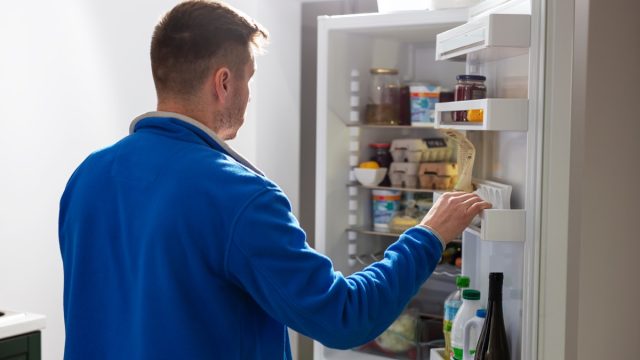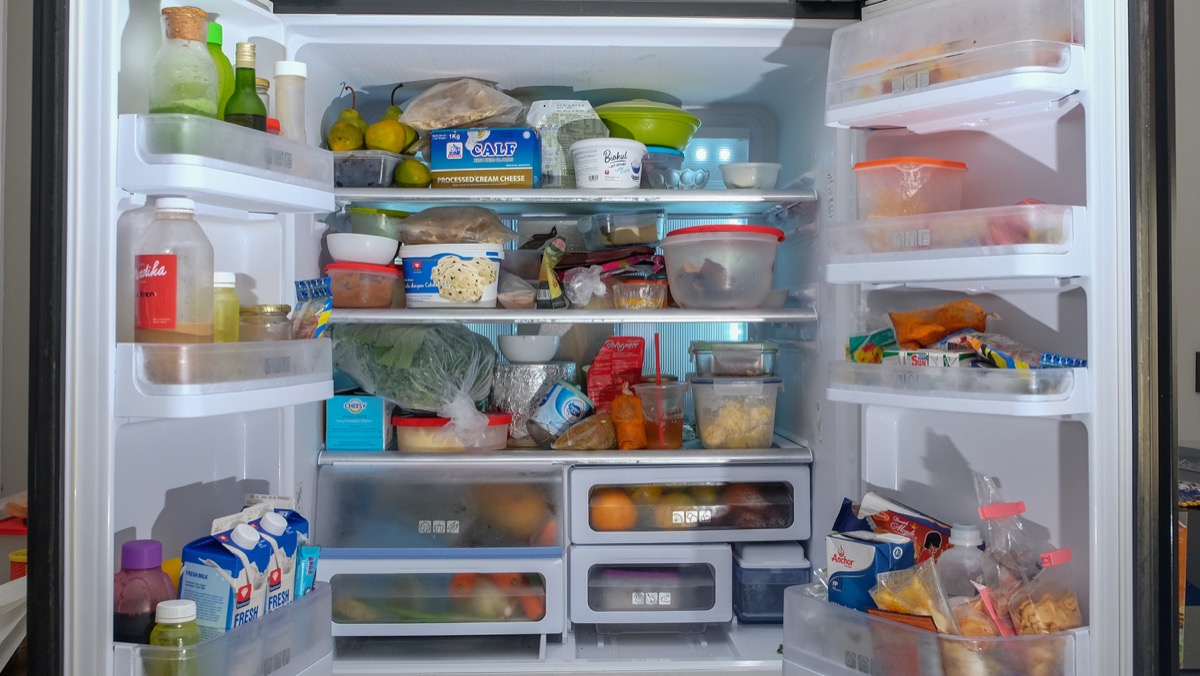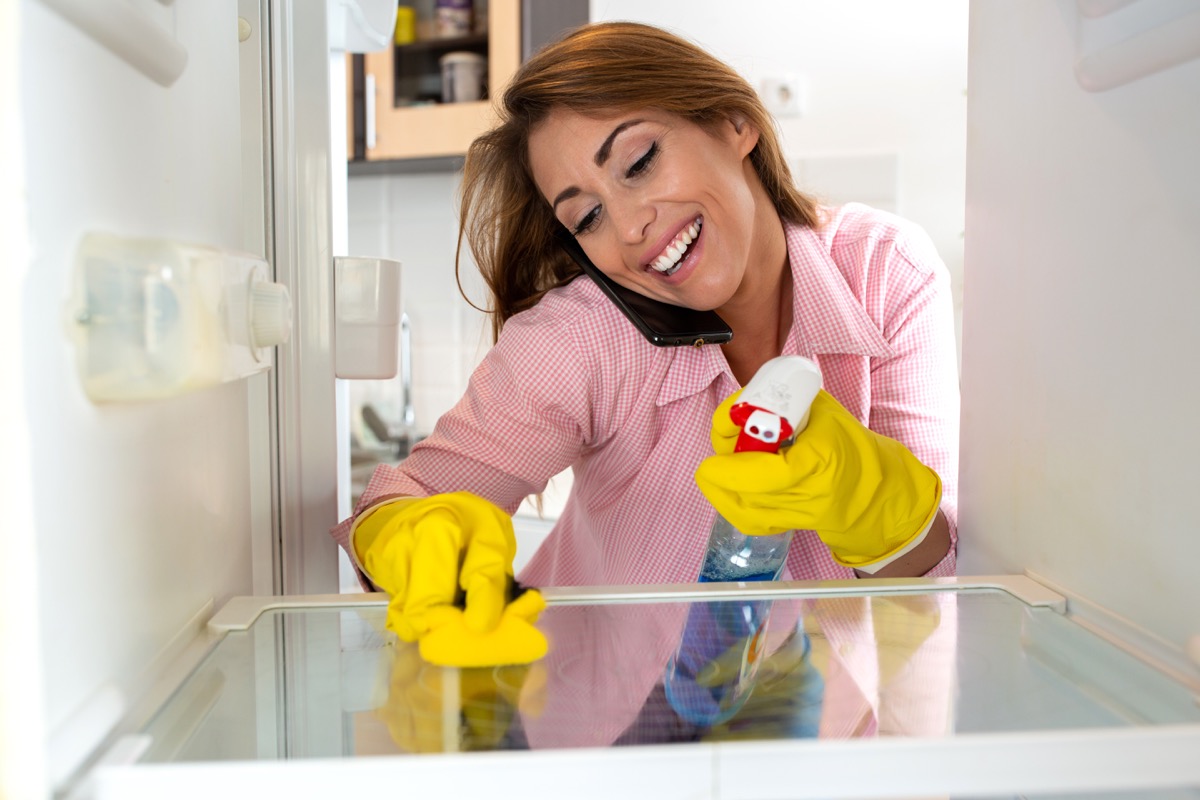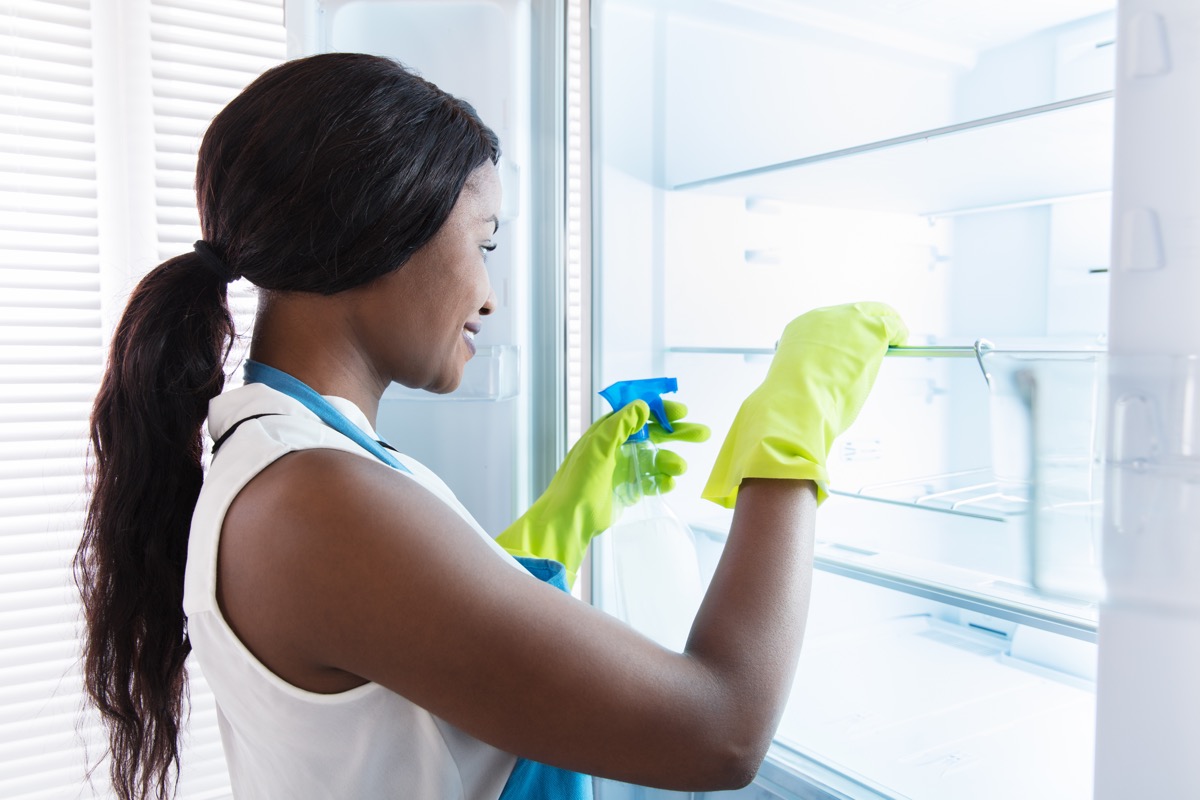Leaving This in Your Fridge Can Make Your Food Go Bad, Expert Warns
Make sure to get rid of this as soon as possible to avoid food spoilage.

The refrigerator is your saving grace when you can't finish your meal and want to save it for another day, but we don't always get to those leftovers as promptly as we'd hoped. Even if you're someone who prides themselves on keeping the fridge sparkling clean, it will inevitably be subject to spills and food that's past its prime. But upkeep is important—experts warn that not maintaining your fridge can make your food go bad faster. Read on to make sure you're not guilty of leaving this in your fridge.
RELATED: Never Eat Leftovers That've Been in the Fridge This Long, Experts Warn.
Leaving spills or spoiled food in your fridge can make your food go bad.

Katie Sadler, kitchen brand manager at Whirlpool, told The Washington Post that keeping your fridge clean isn't just about aesthetics—it's also essential to keeping you safe. She warns that leaving spills or food that has spoiled in your fridge can cause the items in there to spoil. According to General Electric (GE), "mold spores will travel from one food item to another and can live on surfaces of the refrigerator." Per Sadler, any odors from these foods can even trickle into your freezer, since the two compartments often share airflow.
"Wipe drips and puddles when you see them," Carolyn Forte, director of the home appliances and cleaning products lab at the Good Housekeeping Institute, told The Washington Post. "Wash a drawer or door bin or shelf when it's sticky or stained, and you'll stay ahead of a big mess." She also warns that you should do a regular fridge inventory to assure that you're not forgetting about food that's been in there too long.
RELATED: Never Clean Your Kitchen Counters With This, Experts Warn.
Clean up spills right away.

You should never postpone cleaning a spill in your fridge until later, even if it seems harmless. The U.S. Department of Agriculture (USDA) recommends that you "clean spills immediately" and thoroughly with warm, soapy water, and then rinse. The dangers of food don't stop at your fridge, of course. The USDA also says that you should "wipe off sticky containers, along with crumbs and spills on your pantry shelves with all-purpose cleaner, vinegar, or warm soap and water" to be extra safe.
Don't use abrasive cleaning products in your fridge.

While it might seem intuitive to scrub the interior of your fridge with cleaning products, the USDA warns against this. The agency notes that "these may allow chemical fumes/tastes into your food and ice cubes and make them unsafe to eat." Not only can using these products in your fridge be dangerous, but they can also do cosmetic damage to your appliance, Sadler cautions.
If you're trying to get rid of a scent or a stubborn spill, the USDA recommends using a specific concoction. The agency suggests you combine one tablespoon of bleach with one gallon of water, then use the substance to wipe down the surfaces inside the fridge. Once you're done cleaning, you should leave the doors of the fridge open for at least 15 minutes to air it out.
RELATED: For more advice delivered straight to your inbox, sign up for our daily newsletter.
You should deep clean your fridge at least twice a year.

According to Sadler, you should do a deep clean of your fridge about every six months. A deep clean entails completely emptying and turning off the refrigerator. You should remove the shelves and drawers from the fridge and wash them at room temperature—so they don't crack when they're hit with hot water. Wash all the components with a mild detergent and water, and then rinse and dry.
RELATED: If You See This at a Barbecue, Don't Eat It, CDC Says in New Warning.





















